Content Sections
It’s the last time this year I have a chance to speak to you, our supporters, through the ether.
The theme I wanted to raise, as my last, not only this year, but also for the decade, is the issue of connection, especially with nature, both its living and non-living elements. Most importantly, while so many lives that seem entirely disconnected with the natural world, it’s impossible to be truly disconnected, even if it feels that way, and even if someone chooses to be disconnected. We arise from nature, and our bodies return to it when they are done. Through the duration of our lives, we play out a dance with nature, but for so many this is unrecognised. When we harness nature correctly, and in ways that are sustainable, we are rewarded in a variety of ways. We can only live lives in abundant health, if we recognise and marshal the wisdom and power of nature. It’s for this reason that our mission at ANH has always been to work with, rather than against, nature.
This last decade has been extraordinary for many reasons. For me, one of the most seminal recollections I will have of it is linked to the greater level of global awareness that has emerged. Expanded awareness will ultimately lead to expanded consciousness. This raised awareness may have made us less introspective and selfish. It’s led to the recognition of our collective responsibilities for loss of biodiversity and our effects on human-mediated climate change. This awareness has also made more of us aware of the downsides of globalisation, a process controlled by and largely for the benefit of the corporatocracy, not the people or the natural environment. The rapid digitisation of our lives, that’s now reached all corners of the globe and touched an incredible diversity of cultures and socio-economic groups, as well as the associated immediacy of communications from anywhere in the world, have reinforced opposing perspectives. The greater the extent of our digital connection, the more divisive have become our worldviews and perspectives, as seen through social, political, economic and environmental lenses.
In this blog, I want to take a look at two issues that reflect this divisiveness. Yet I also wanted to show that out of this seeming chaos emerges some form of congruence, a desire to reconnect with nature and with ourselves. Like an increasing number of us on this planet at this time, we feel that reconnection is required if we are to face and overcome our current challenges. These challenges are now so big, they have the capacity to wipe out human and many other forms of life as we know them.
But if we are to reconnect – we must recognise and overcome our illusion of separation. We must recognise that we are never truly separated from nature. We cannot live without nature, while nature can do just fine without us. Our separation is nothing more than an illusion, one that’s been helpful in creating the complex, technologically-driven world that so many enjoy or aspire to today. But it’s not a one-way street. The further we travel down this road, the more we separate ourselves from the very things we need to provide life. In effect, we start to kill ourselves, and we’re already a long way down that path.
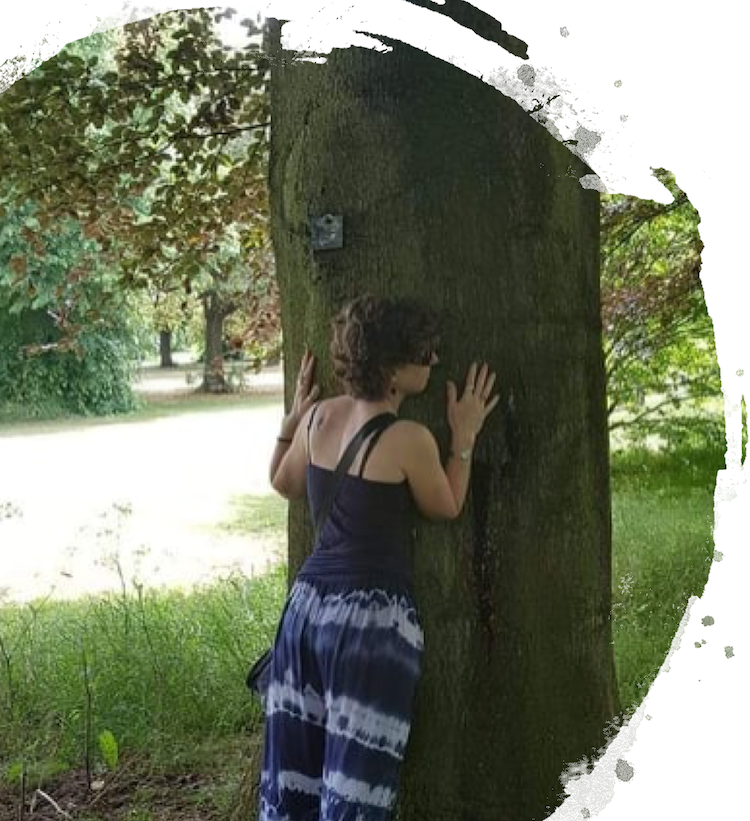
The wisdom and power of nature in all its forms has been widely recognised by some of the greatest minds we have known. From philosophers, like Confucius, Plato and Aristotle through to Carl Jung. The notion of nature’s inherent wisdom, and its ability to be our ultimate teacher, has been dissected by great scientists of the ilk of Haisch, Bohm and Whitehead, through to Einstein. Great poets, in the form of Keats, Coleridge, Wordsworth and Blake, have left us exquisite writings about it. And of course, Da Vinci, one of the world’s greatest polymaths, used the wisdom of nature as his primary source of inspiration.
For anyone who wants a clearer understanding of the ‘illusion of separation’, I cannot recommend a better book than Giles Hutchin’s book of the same name (2014), subtitled “Exploring the causes of our current crises”. For the time poor, you can get a 2 minute preview directly from Giles, below.
Now with this backcloth behind us, let’s change gear and look at the events of last week, in the UK: the General Election.
Electoral reconnection?
Worry not, this isn’t going to be a political rant, as, at ANH, we work hard to maintain a non-partisan stance. Natural health is an aspiration, after all, that transects all political boundaries. But I will, however, offer observations of some of the things that happened both before, during and immediately after the election.
The election delivered the greatest majority for a ruling government since Margaret Thatcher’s third victory in 1987. Since the referendum on Brexit in 2016, the country has been deeply split. The profound uncertainty that then emerged has impacted society at all levels. Perhaps we shouldn’t have been surprised given the closeness of the referendum result (52/48).
What we saw last week in the election results marked a change. Out of chaos emerged specific patterns. Faced with 3 years of national indecision, parliamentary deadlock, public anxiety and business uncertainty, a giddy cocktail that created a culture in which it wasn’t uncommon to find polar opposite political views within individual households, views determined in the voting booths became more consolidated. Most of England and Wales became blue, given the extent of the Conservative party landslide largely at the cost of Labour. Most of Scotland voted for the Scottish National Party. Labour maintained its stronghold in the multi-cultural constituencies of London. The distinct absence of any Conservative seats in Northern Ireland reflected just how the Northern Irish feel about Boris Johnson’s plan for a customs border in the Irish Sea.
I’m not convinced that this election result actually reflects political views over staying in or leaving the EU. It reflects a need among a very large number of British people to come back from a place of despair, regain a sense of connection and find stability and hope. It also reflects the lack of viable political alternatives with credible manifestoes and hopeful visions.
In his speech outside No 10, Boris Johnson picked up the mood of the nation and said, “I urge everyone to find closure and let the healing begin”. Right now, few have the appetite to contemplate what might happen if there is a constitutional stand-off between Scotland and England. Most, even the Prime Minister himself, want a break from looking at the detail of how Brexit trade deals will be negotiated in 2020. It seems 67 million people don‘t do well for too long when they feel so polarised. Boris Johnson also said, “The overwhelming priority of the British people now is that we should focus above all on the NHS. That simple and beautiful idea that represents the best of our country....we're going to unite and level up.”
Reflecting the will of the people that had made itself apparent to all political parties during the general election campaign, ‘health’ goes to the top of the agenda. But these promises aren’t really about health at all. They’re about investing further in an inherently inefficient, often ineffective, disease management system. More money and staff will be thrown at this ailing ideal of a ‘healthcare’ system, that’s free at the point of use for all who use it, with no real understanding if it can be fixed in this way. But the idea resonates. Mainly because it’s about connection and about empathy, looking after the sick, and ensuring those with less can get the care they need and not suffer unnecessarily because they can’t afford better healthcare. These notions of connection and empathy are exactly what the UK has been sorely missing in recent years. But we could do a whole lot better if we were to change our focus from disease and move it to health.

Most of us feel better when we spend time connecting with the natural environment
The re-emergence of health-nature consciousness
This segues us to the second area I wanted to raise, which is our rapidly transforming understanding of human health, including our intrinsic dependence on, and connection with, the natural world both outside and within us. We also need to appreciate how the technology we have created that makes us feel so superior and separate from the natural world can interfere with it. A decade ago, it seemed we were a long way from a place where mainstream medics would recognise that without our microbial friends within us, the cells of which outnumber our own some 10 to one, we cannot achieve abundant health and resilience. No longer, although most mainstream medics have yet to be sufficiently educated about ways of improving this microbe-human interaction.
We might also not have expected that the World Health Organization, via the International Agency for Research on Cancer (IARC), would classify such ubiquitously distributed human-made things like glyphosate, the world’s number one herbicide, and RF radiation, emitted by mobile phones and telecom antennas and satellites, as probable and possible human carcinogens, respectively.
For most of the last century, we’ve viewed the human body as a machine. The body was considered made up of discrete components that had limited connection with other components via the nervous, circulatory and hormonal systems. Specialists that spend the majority of their lives looking at just one of these components are apportioned to manage disease in that one component, largely ignoring what’s happening outside their respective silo. No one specialist (sorry, General Practitioners) looks at the system as whole, this not only including those parts of it that exist within the human body, but also the interactions with the external ecosystem.
We now know that our skin and our gastrointestinal tract that we long thought separated us from the outside world, don’t at all. They simply allow intelligent interactions with the world around and within us. These semi-permeable membranes and gateways coordinate what should remain outside and what should be given a permit for entry. It works well most of the time, but the fact we’re now exposed to over 100 million industrially-made chemicals and consume diets that are rich in new-to-nature, highly processed ingredients, often deeply deficient of plant-based compounds on which our evolution has depended, poses specific problems for us. It’s a subject that has fascinated me for over 3 decades and I’m grateful for being given the opportunity to contribute a chapter on this subject to a practitioner textbook on Integrative and Functional Nutritional Therapy that is soon to be published by Springer.

Nature prescription is now a recognised medicine
So while systems thinking is coming in, and the medical profession is rapidly having to change its ‘worldview’ on health and disease, including recognising the importance of dietary, lifestyle, social and environmental determinants of health and disease, it’s barely started the process of integrating this new awareness into its practice. That will take years to happen, and it is us, the people, who have the greatest capacity to catalyse the process.
In my view, this doesn’t mean condemning mainstream medicine as a whole. We’ve seen that such condemnation often leads to more divisiveness, more alienation. The corporate powers who also control most of the airwaves, along with their ‘hench’ men and women in government, are ready for that. By typecasting natural means of healthcare as primitive, unscientific and ineffective, they can keep many away from it. If people don’t try it, they won’t buy it.
This circumnavigation on which I have taken you spells out the philosophy driving the biggest project we have yet engaged with. It’s about how we work with others in an effort to use the lessons of the past, along with the wisdom of nature, the highest level of knowledge about what really drives health and resilience, and an understanding of human nature and consciousness itself, to create a system of health creation that is genuinely future fit.
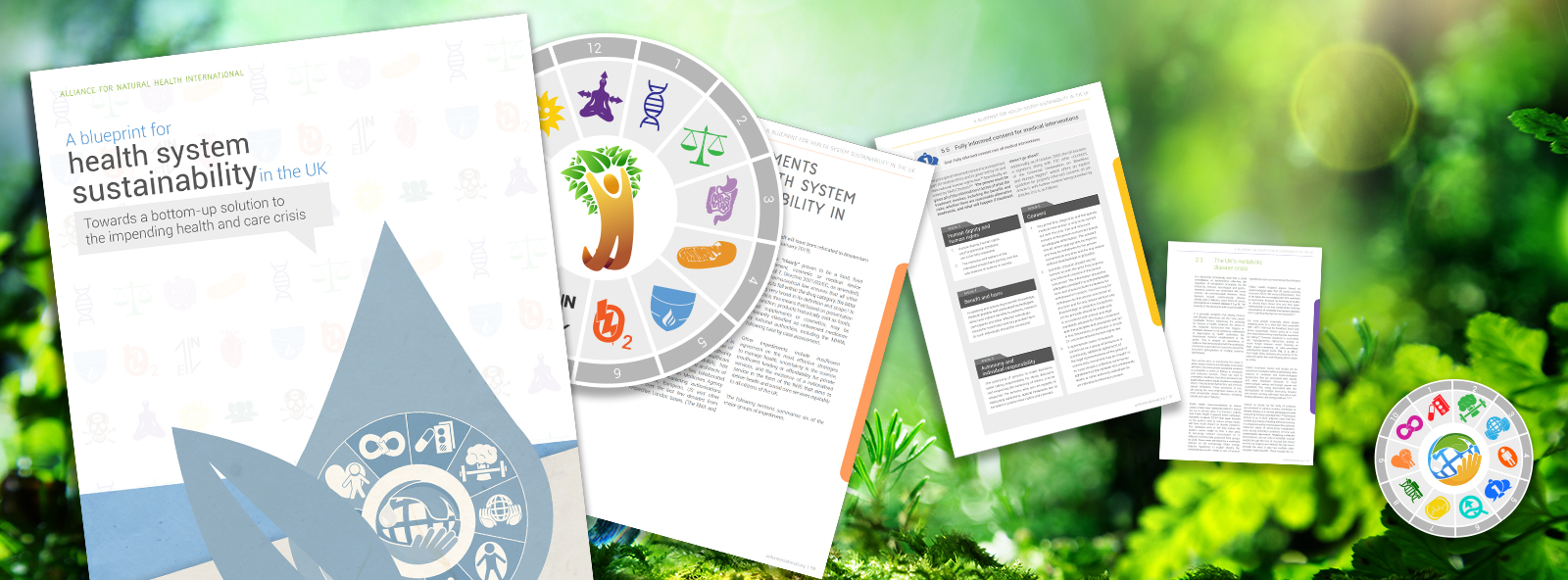
I am of course referring to our blueprint for health system sustainability project that is gathering pace, and about which you will hear much more in the coming year. Our end goal is to have such an approach, which is inclusive of all medical systems that are effective and sustainable, be widely adopted by the end of the decade. That would be a huge win for future generations and for nature. Right now, it seems a long way off as we exist in such an acutely polarised world. But it is this very polarity that animates life. From the negative, we find the positive. From the dissonance and chaos, will emerge flow and higher consciousness. In such an environment, things can only get better and more aligned, including with nature on which all of life is both interconnected and interdependent. It’s as if the disconnection we’ve been experiencing was necessary to imbibe a renewed sense of connection. What a time to be alive!
On that note, many thanks, dear readers, for your support this last year, and for some of you, the last decade! And wishing you success and happiness for 2020 and beyond.
This is what Giles Hutchins, author of The Illusion of Separation (2014, Floris Books) said about the ANH blueprint:
“This is a time of great transformation – of simultaneous breakdown/breakthrough - affecting all aspects of our human endeavour, not least our approach to human health and wellbeing. Our present responsibility is not simply for our own health, but for future generations, and the wider fabric of life on which we all depend. This timely, far-reaching and well-researched report lays critical foundations for future pathways towards a necessary regenerative health system that does nothing more, nor nothing less, than embody the logic of life. We humans are very much part of life, and would do well to adhere to the wisdom life bestows us. It’s time to move beyond overly-reductive lenses that may well have served us in the Industrial era, to now see with new eyes, and recognise the holistic nature of life. Force-fitting mechanistic and reductive methods creates ever widening and deepening systemic consequences for ourselves, our future, and the rich diversity of life on Earth. We know this. The time has come to embrace the ecological principles of life, and this comprehensive report goes right to the heart of the matter. It forms a key part of the backbone of this necessary (r)evolution towards ecological consciousness.”
- Giles Hutchins, Regenerative Leadership specialist, Chair of The Future Fit Leadership Academy, cofounder of Regenerators, and author of 'The Nature of Business' (2012), 'The Illusion of Separation' (2014) and 'Future Fit' (2016).




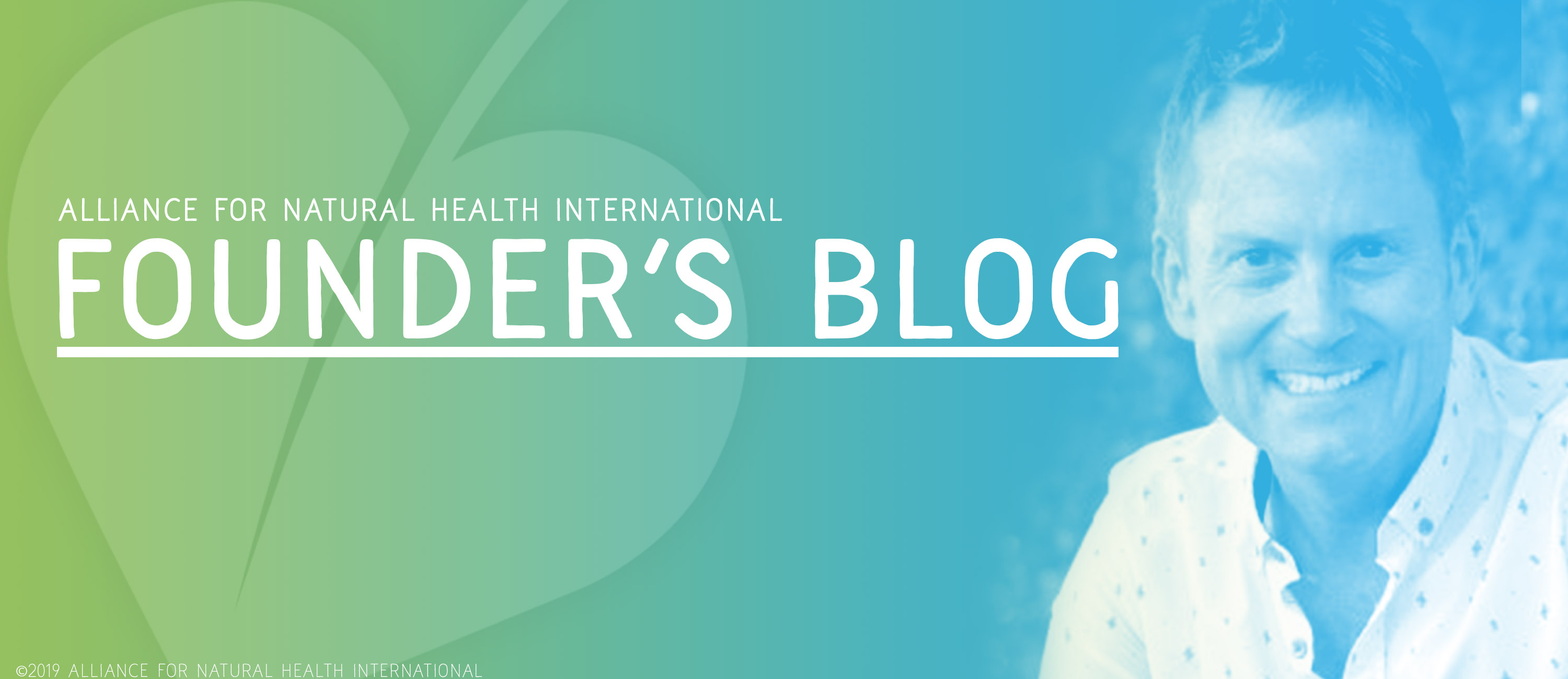
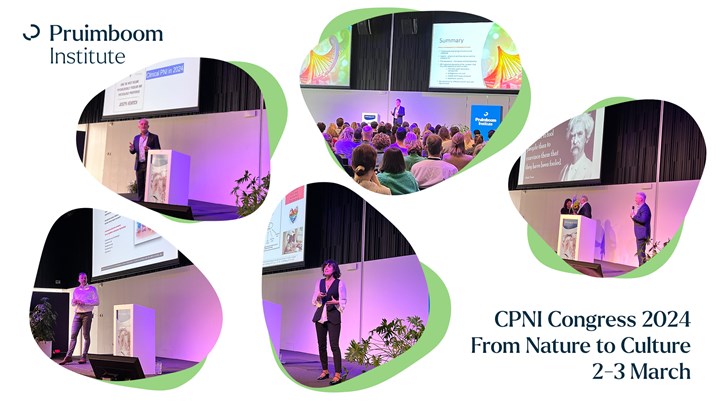

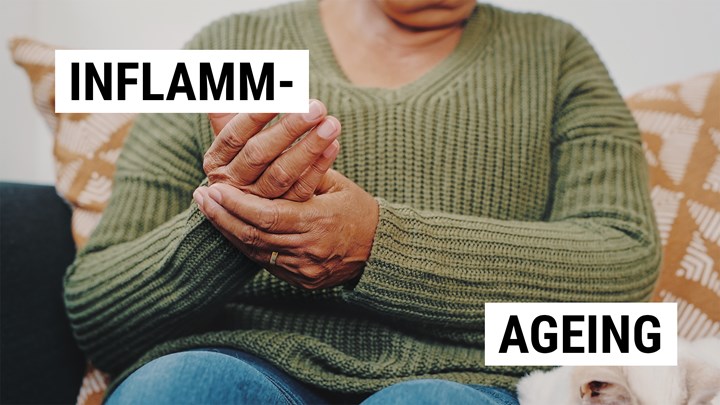
Comments
your voice counts
There are currently no comments on this post.
Your voice counts
We welcome your comments and are very interested in your point of view, but we ask that you keep them relevant to the article, that they be civil and without commercial links. All comments are moderated prior to being published. We reserve the right to edit or not publish comments that we consider abusive or offensive.
There is extra content here from a third party provider. You will be unable to see this content unless you agree to allow Content Cookies. Cookie Preferences